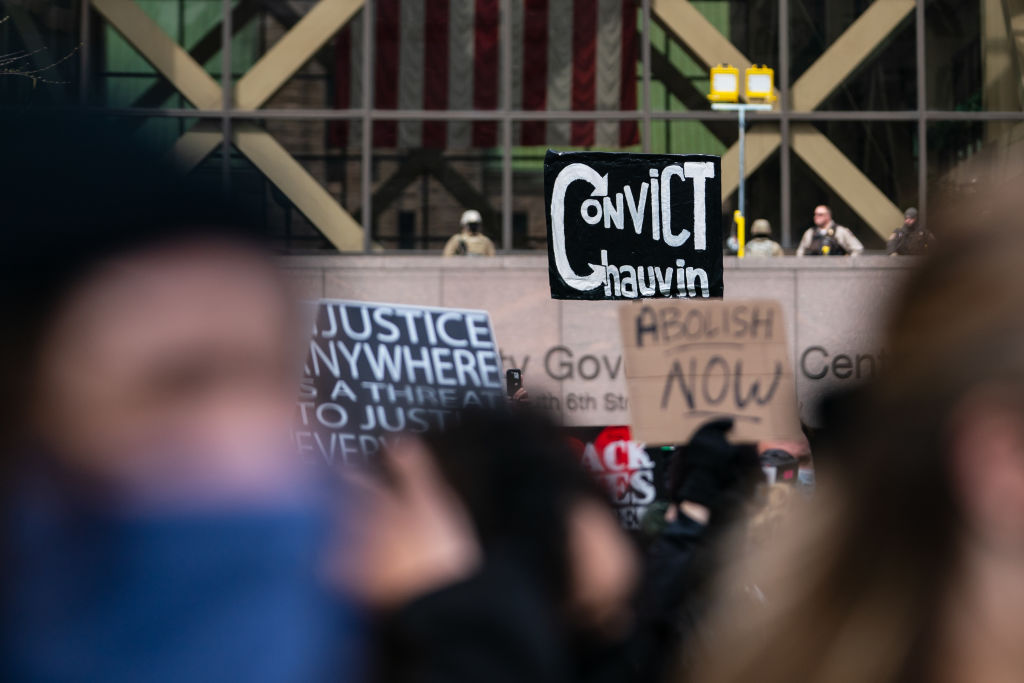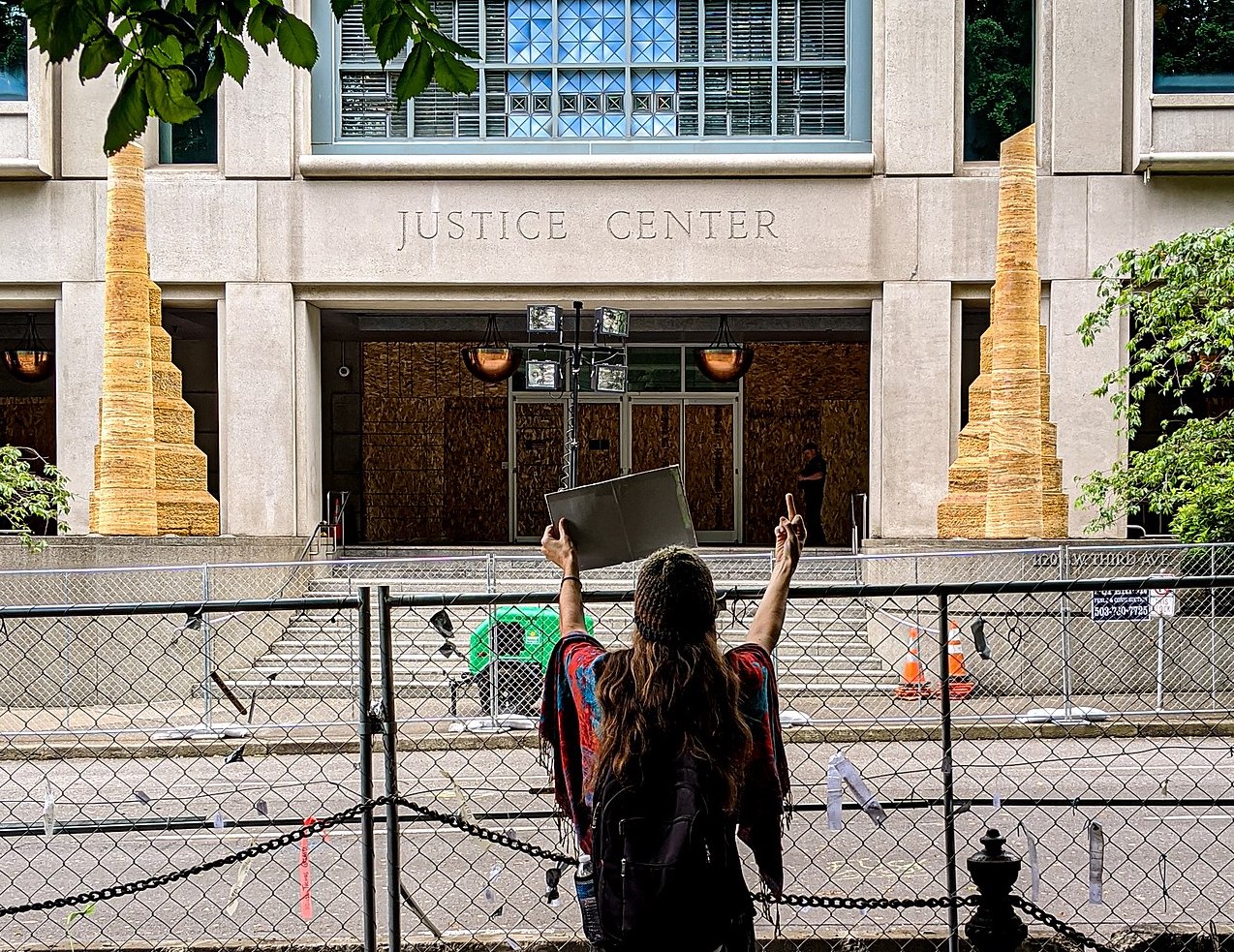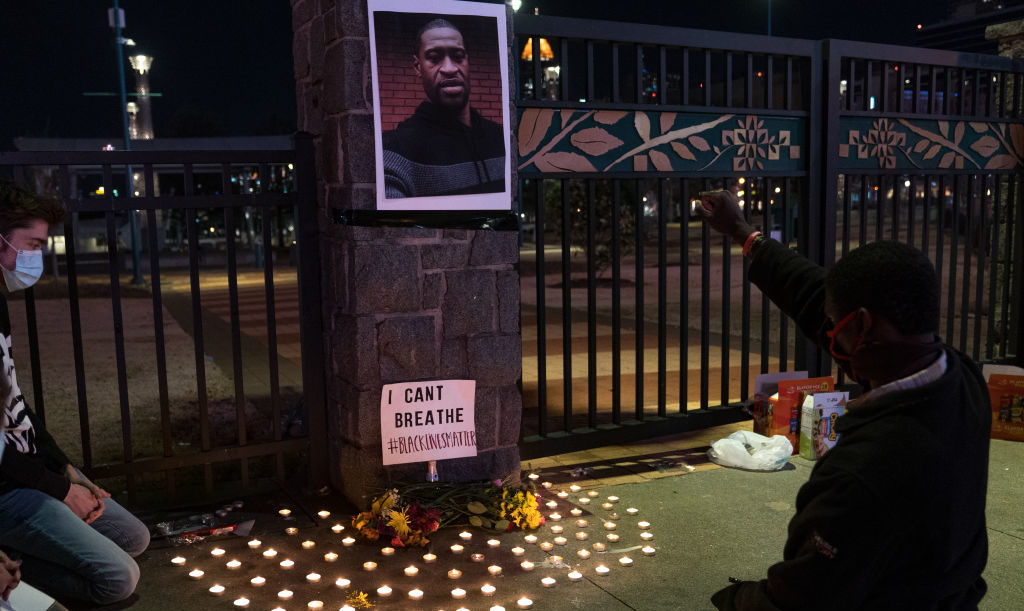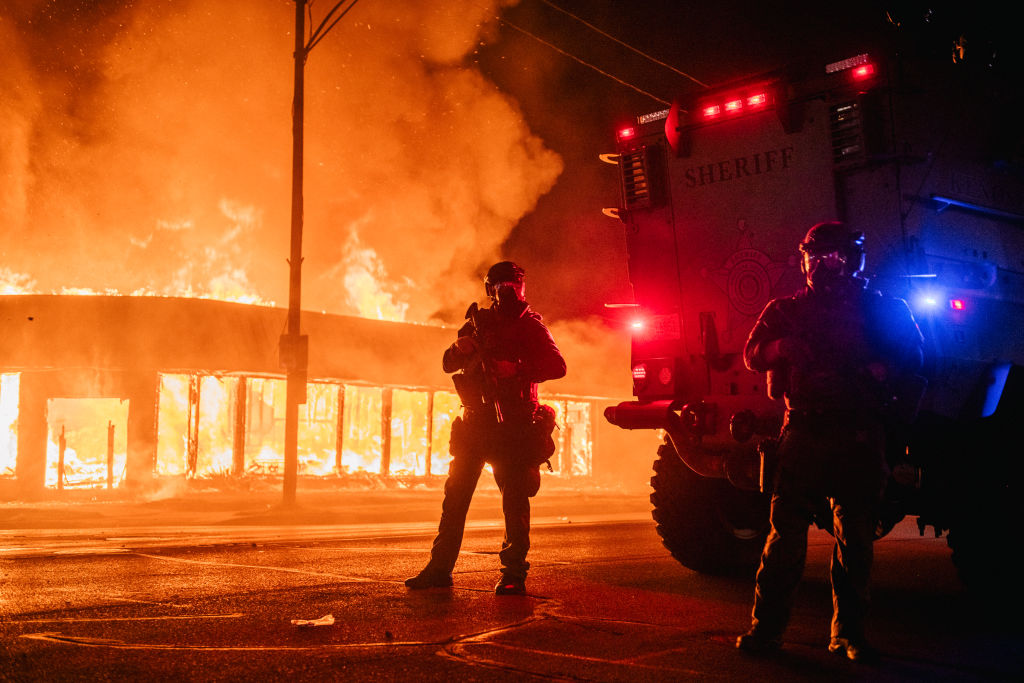Some victims are more equal than others.
We Need to Talk About Derek

An appeal in the George Floyd case could spark a new round in the national conversation on race.
Last week it was announced that Derek Chauvin, the police officer convicted of the murder of George Floyd, intends to appeal his case to the Supreme Court, after his state conviction was upheld by the Minnesota Court of Appeals and the Minnesota Supreme Court declined to hear a further appeal. Chauvin believes he was not given a fair trial, in large part because the judge in the original case decided not to move the trial out of Minneapolis after the unprecedented racial riots and media coverage that followed the death of George Floyd.
“The primary issue on this appeal,” said Chauvin’s lawyer, William Mohrman, before the Court of Appeals, “is whether a criminal defendant can get a fair trial consistent with constitutional requirements in a courthouse surrounded by concrete block, barbed wire, two armored personnel carriers, and a squad of National Guard troops, all of which or whom are there for one purpose: in the event that the jury acquits the defendant.”
Mohrman also argued that the judge should have sequestered the jury to avoid exposure to the media circus, including the announcement that the city had already reached a $27 million settlement with the Floyd family, and pointed to procedural errors, especially the fact that one of the jurors failed to announce his earlier presence at a civil rights event until after the trial. Then there’s the issue of whether it was legal to convict Chauvin of third-degree murder, and whether the judge was right to exceed the sentence of 12.5 years recommended under the state’s sentencing guidelines.
According to media reporting, Chauvin’s chances of being heard by the nation’s highest court are slim. The Supreme Court hears just 100 to 150 of more than 7,000 cases that come before it each year.
But what if the Supreme Court does hear Chauvin’s case? And what if, heaven forbid, it decides to strike down his conviction?
Let me preface this discussion by saying that I’m not going to talk about the merits of the case, except tangentially by talking about the state of the American legal system in 2023 and the widespread use of political intimidation. It’s worth noting, though, that the prosecutors in the Court of Appeals were quite happy to admit that there was nowhere else Chauvin’s case could have gone in the state to avoid pretrial publicity, which of course raises the question of whether a fair trial for Derek Chauvin was possible at all in 2020—or, indeed, now.
The first thing that’s worth saying is that the Supreme Court, as it currently stands, with a clear conservative majority, is not averse to taking on controversial issues and handing down decisions that go totally against the liberal grain. In June 2022, most notably, it overturned Roe v. Wade when it heard the case of Dobbs v. Jackson Women’s Health Organization, which centered on the question of whether Mississippi could ban abortion at 15 weeks, nine weeks earlier than the law at that time allowed.
Protests took place immediately. In the ensuing hysteria, many talking heads claimed that virtually every liberalized sexual institution, from gay rights, same-sex and interracial marriage, to birth control, would be next on the chopping block. There were calls to abolish the Supreme Court or stack it with liberal justices and to impeach Justices Gorsuch and Kavanaugh for lying under oath about their intentions with regard to Roe v. Wade. Both men had stated that they believed the decision to be “settled” law. On the 50th anniversary of Roe v. Wade, in January of this year, the White House released a statement promising that President Biden would do everything he could to circumvent the Supreme Court’s decision, including using executive orders and signing new legislation into law.
It’s fair to say, then, that the Supreme Court is primed to make polarizing decisions. However polarizing the Dobbs decision was, though, we should expect the reaction to any attempt to alter Derek Chauvin’s conviction to be far worse.
The “mostly peaceful” riots that took place in the summer of 2020 were the most expensive in U.S. history, at a cost of at least $2 billion to the insurance industry, likely a significant underestimate of the true economic cost of the rioting. Up to 75 percent of all U.S. businesses are underinsured, and 40 percent of all small businesses have no insurance at all. The longer-term consequences also have to be considered. A study of the 1992 Los Angeles riots revealed an economic decline of $3.8 billion in areas affected by the riots and a loss of at least $125 million in tax revenue too. In adjusted terms, the insurance cost of the Los Angeles riots was significantly less than the cost of the George Floyd riots, so we should expect the knock-on costs of the latter to be far greater too. Indeed, the 2020 riots were an inseparable part of the largest wealth transfer in American history, taking place under the aegis of the pandemic’s social restrictions and forcing further hardship and loss on small business owners across the country.
The decision just to hear Chauvin’s case would almost certainly ignite a fresh conflagration, and like all such conflagrations today, it would be encouraged by Democratic politicians and the liberal media, which would talk about “justified anger” and probably coin some new euphemism to excuse the violence on display. As we know, there now exists a monstrous racial-grievance machine that’s ready to be fired up at a moment’s notice, its most visible organs being groups like Black Lives Matter. The machine’s foot soldiers—a motley coalition of professional activists, anarchists and self-confessed communists, braindead students, criminals, celebrities, social-media influencers, and affluent white female liberals—mass behind slogans like “all cops are bastards” and “defund the police,” and generally go wherever and do whatever their handlers tell them to go and do, with no independent thought of their own.
Remember that Judge Kavanaugh faced a credible threat to his life after a draft opinion in the Dobbs case was leaked that suggested Roe would be overturned. A 26-year-old man arrived outside Kavanaugh’s home in Chevy Chase with a gun, knife, zip ties, pepper spray, and duct tape. When arrested by the police, he told them he planned to kill the Justice and then kill himself. After the Dobbs decision was finally released, Kavanaugh was repeatedly harassed in public. When he and his family were forced out of a restaurant by hecklers, Alexandria Ocasio-Cortez sneered, “poor guy. He left before his soufflé because he decided half the country should risk death if they have an ectopic pregnancy within the wrong state lines. It’s all very unfair to him.” Senator Chris Murphy and others provided further snark to the media. It’s impossible to pretend such blatant intimidation doesn’t have the full support of Democratic politicians.
Intimidation, of course, is what’s at issue in the Chauvin case, but the irony of using intimidation to sway an intimidation case would be lost on those doing it, since they only understand power—who is friend, who is enemy—and aren’t at all interested in principles, except when they can use them as tools to belabour and bash their opponents over the head with. Attempts to use threats to interfere in the judicial process are of course nothing new, but they’ve taken on something of a set formula in the explosively charged racial atmosphere of America since Obama’s second term, especially in cases involving white defendants accused of violence against blacks. Never mind that most racial crime in the U.S. goes in the opposite direction—blacks robbing, attacking, murdering, and sexually assaulting whites—because the overwhelming priority is to ensure that every white defendant accused of violence against a black person is judged to be “racist” before the trial has even begun.
By simultaneously considering a case about judicial intimidation while under the threat of it themselves, the Supreme Court would have a chance to rule not just on Chauvin but on America’s new racial and political regime, which, I think it’s safe to say, most of the conservative members of the Court are unlikely to be in favor of. It should be obvious that much more is at stake here than just the fate of a single man.
In recent years, there has been a concerted attempt to “refound” America, not as a nation of revolutionaries who threw off the authority of the British Crown in the pursuit of life, liberty, and happiness, but one built on the original sins of racial injustice and exploitation. This is the explicit premise of the 1619 Project, for instance, a New York Times-led initiative to “correct the fundamental lie of the American origin story,” as one writer for Fortune magazine put it. The choice of 1619 is key, because that was the date the first slave ship, the White Lion, arrived in the British colony of Virginia.
This story is not just a necessary corrective to the traditional story of American history. Rather, it’s a charter to reshape the nation in the present and future. In this vision, America will look much more like post-Apartheid South Africa—where major political figures call for the killing of whites—than anything the Founding Fathers ever imagined. It will be a nation committed to radical redistribution of wealth and power along racial lines, and will tolerate injustice so long as it benefits anybody but white people. This is a system of anarcho-tyranny in which the tax-producing white middle classes will be hemmed in and controlled by means of prejudicial laws, high taxation for redistribution, and managed chaos in the form of endemic crime that goes largely or even totally unpunished.
George Floyd, himself a career criminal, is one of the progenitors of this new regime, a literal martyr for the cause. In fact, he’s more than that: he is its saint. The gold casket, multiple funerals, statues and murals, and even baptisms at the site where he was killed all attest to that. The Catholic University of America drew heavy criticism for displaying a painting entitled Mama that depicted Floyd as Jesus, being supported by the Virgin Mary. Although there have been other black martyr figures in recent years, like Trayvon Martin and Breonna Taylor, none possesses the symbolic power of the big man in the vest from Minneapolis. His central place within the new racialized mythos of America is undeniable.
In truth, whether the Supreme Court has a part to play in the deconstruction and discrediting of the hagiography that has been created for George Floyd is anybody’s guess. The Court could just as easily ignore the case. If its members care about their personal safety and that of their families, as well as the continuance of the institution in its current form, or any form at all, they would probably do well to choose another case instead. But nothing can change the fact that, if the true promise of the American founding is to be preserved, the new counter-histories and their sacred figures must be challenged and, ultimately, revealed for what they truly are.
The American Mind presents a range of perspectives. Views are writers’ own and do not necessarily represent those of The Claremont Institute.
The American Mind is a publication of the Claremont Institute, a non-profit 501(c)(3) organization, dedicated to restoring the principles of the American Founding to their rightful, preeminent authority in our national life. Interested in supporting our work? Gifts to the Claremont Institute are tax-deductible.
Serf's up.
Why can’t Democrat leaders see what we all see?
The Current Thing is an opportunity for courage.
Jacob Blake, Kyle Rittenhouse, and the lies we still live by.
The Red Scare podcast brings a downtown dissident edge to the table.






